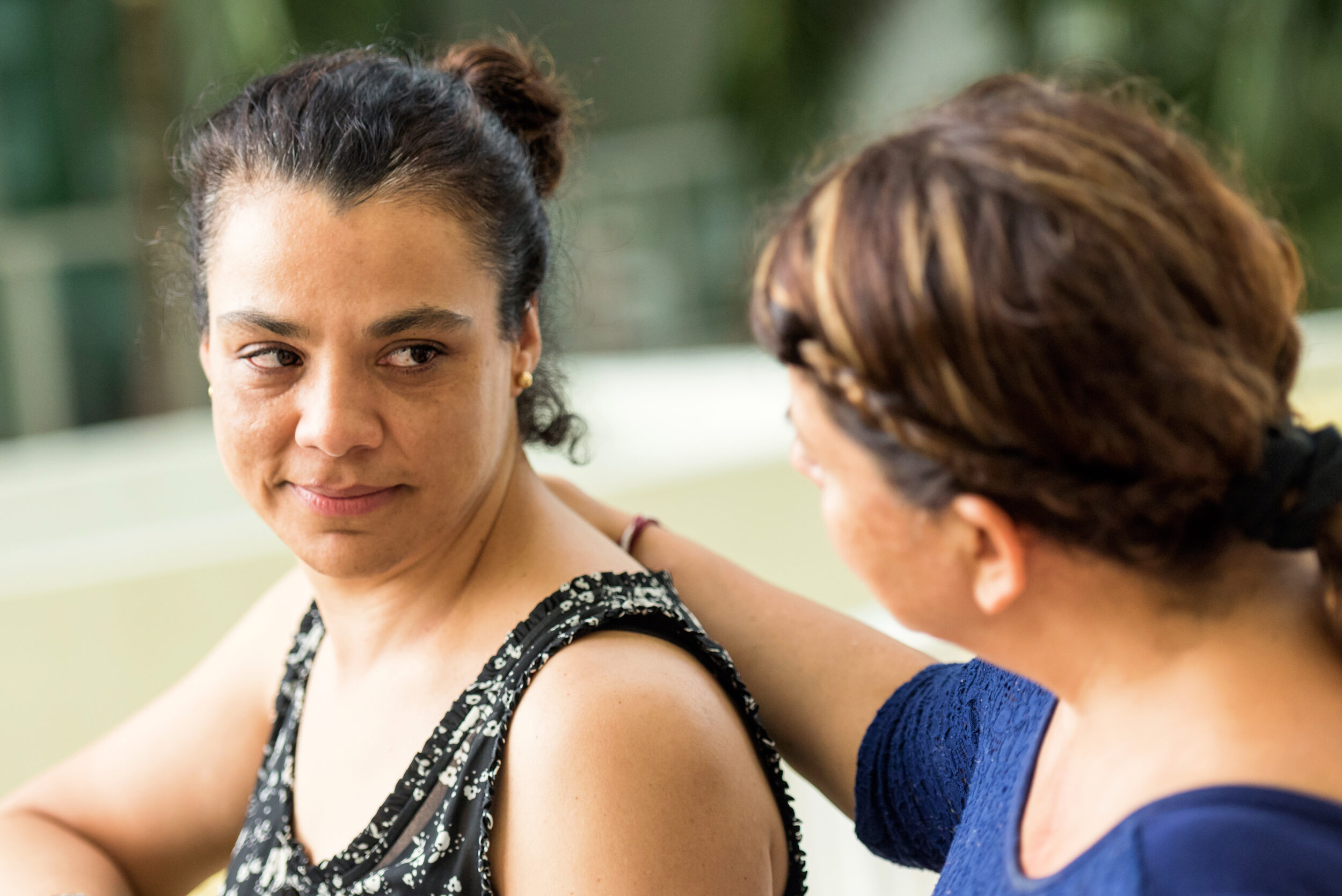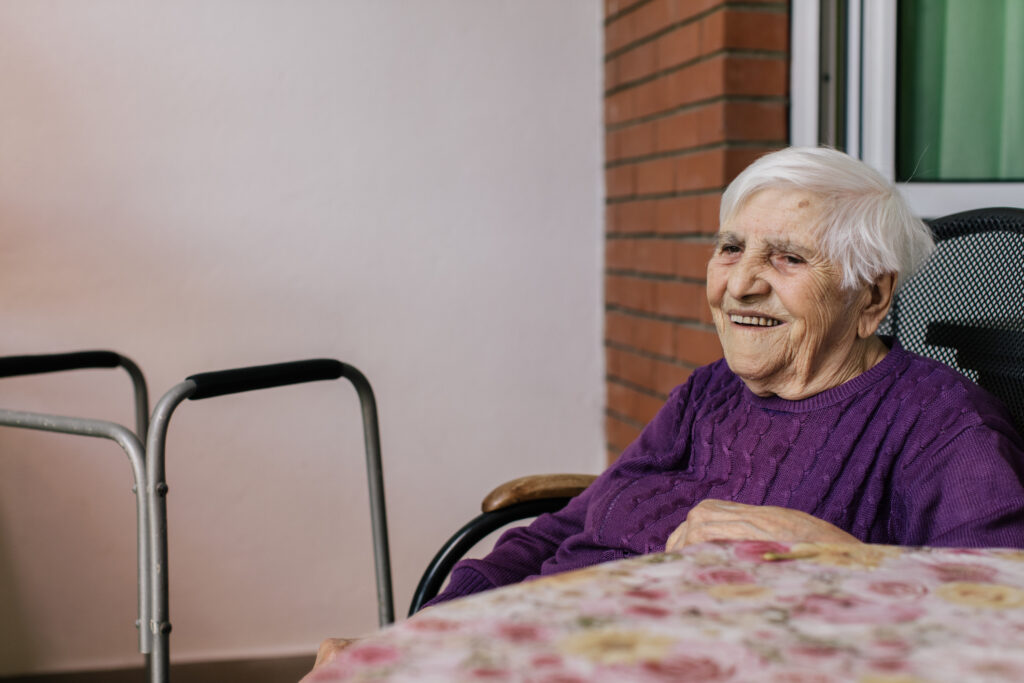
“With other lenders, we were just a mark on a spreadsheet”
Jon Metcalfe, Deputy Chief Executive of YMCA Together, was getting increasingly frustrated by conversations with other lenders. His experience with Charity Bank couldn’t have been more different. Find out why.
Why did you need a loan?
We put in a bid with Homes England to purchase 10 properties through the Rough Sleepers Accommodation Programme. The funding was agreed, but it wasn’t enough to cover the full cost, so we needed to borrow the rest of the money.
There’s a short supply of one-bedroom properties in Liverpool, so we’ve purchased 10 two-bedroom terraces and are repurposing them as single occupancy properties, with each box-room being turned into a study space.
The properties are located across Liverpool. We didn’t want to create another hostel; we want people to be integrated within existing communities. Some people will move in from one of our hostels; others might move in directly from the streets or other accommodation. These homes will give people a much-needed stepping stone. Tenants will likely stay in them for around two years, to gain stability and build the skills to manage a home. Then, hopefully, they’ll be able to move on, and new people will move in.
Could you have bought the properties without the loan?
We couldn’t have bought the properties without the loan from Charity Bank. The Homes England funding only covers around half of the cost. We certainly don’t have enough spare reserves to fund the rest ourselves, and the grant was for 10 properties, so we couldn’t have taken it and reduced the scope of the project. We looked for a bank partner to work with that would understand our requirements and, fortunately, we found Charity Bank.
What made you choose Charity Bank for your loan?
We spoke to a few banks, but as soon as we spoke to Charity Bank, it just felt right. It was a case of, “Oh, they understand us.” I guess the clue is in the name, but Charity Bank really does understand charities. It was becoming very, very complicated dealing with other banks, but with Charity Bank, everything was really straightforward.
We had a couple of meetings and thought. “Yes, this is someone that we want to work with.” We want to purchase more properties and create more homes for people in the future, so it was vital to find a lender that shared our values, understood our challenges and was prepared to listen.
How have you found the relationship since you chose Charity Bank?
Charity Bank treats us like people rather than just another mark on a spreadsheet. We felt like a very small fish in a gigantic global pond with some of the other banks that we spoke to, but with Charity Bank, it feels like a partnership. The communication and everything has been fantastic. It’s been a seamless process. I’d fully recommend Charity Bank to other organisations in the voluntary sector.
Had did you find the loan process itself?
It was actually easier than I was expecting. This is the first time that we’ve borrowed money and bought new properties in a long time, but there were no issues with the loan at all. I wish I had an exciting story to tell about challenges overcome, but it was all really straightforward. It wasn’t convoluted or any more complex than it needed to be, and we felt really supported throughout the whole process.
One of the things that appealed with Charity Bank was having named contacts to work with. They were easily accessible by email, phone, Teams etc, so queries got answered quickly. I’d have a conversation about paperwork needing to be signed, and the paperwork would be in my inbox before I’d put the phone down.
With some of the other lenders, we were phoning a customer service centre, and it felt really distant. With Charity Bank, it felt personal.
The whole process was really slick and efficient. So, I have no complaints at all, only praise and admiration really!
Is there anything charities should do before they apply for a loan?
My main recommendation would be to go to Charity Bank first to save time. I can understand the need to test the market and shop around. But if you speak to Charity Bank first, you’ll find out exactly what the process is, and exactly what you should be asked and what’s not necessary. So then, if you’re speaking to other banks, you can quickly realise, “OK, I shouldn’t need to provide all that information.” Some of the lenders we spoke to asked for ridiculous information, as they clearly didn’t understand the sector.
Other than that, I think most charities know the importance of good due diligence. You need to make sure that the loan is affordable and won’t put the organisation at risk.
How did your trustees feel about taking out a loan? Did you need to do any groundwork to get them used to the idea?
The charity had absolutely no debt, so it felt like a big step. But as soon as we were able to put Charity Bank forward as our lender, that eased a lot of concerns. Some of our trustees have signed off on loan agreements and they were impressed with the speed and efficiency of Charity Bank’s process.
What’s next for YMCA Together?
We’re in the process of developing our housing strategy. We lease some of our current accommodation, so I’d like to bring more property into our ownership. If we own more of our properties, we’re not being exposed to high rents, so we can reinvest more money in projects and keep our properties at a better standard. And in the long-term, we’ll be gaining assets.
Now that we’ve started our relationship with Charity Bank, our ambitions feel more real.
If you’d like to speak to Charity Bank about a loan for your charity or housing association, please call us on 01732 441919.
About Charity Bank
Charity Bank is the loans and savings bank owned by and committed to supporting the social sector. Since 2002, we have used our savers’ money to make more than 1400 loans totalling over £605m to housing, education, social care, community and other social purpose organisations.
Nothing in this article constitutes an invitation to engage in investment activity nor is it advice or a recommendation and professional advice should be taken before any course of action is pursued.


